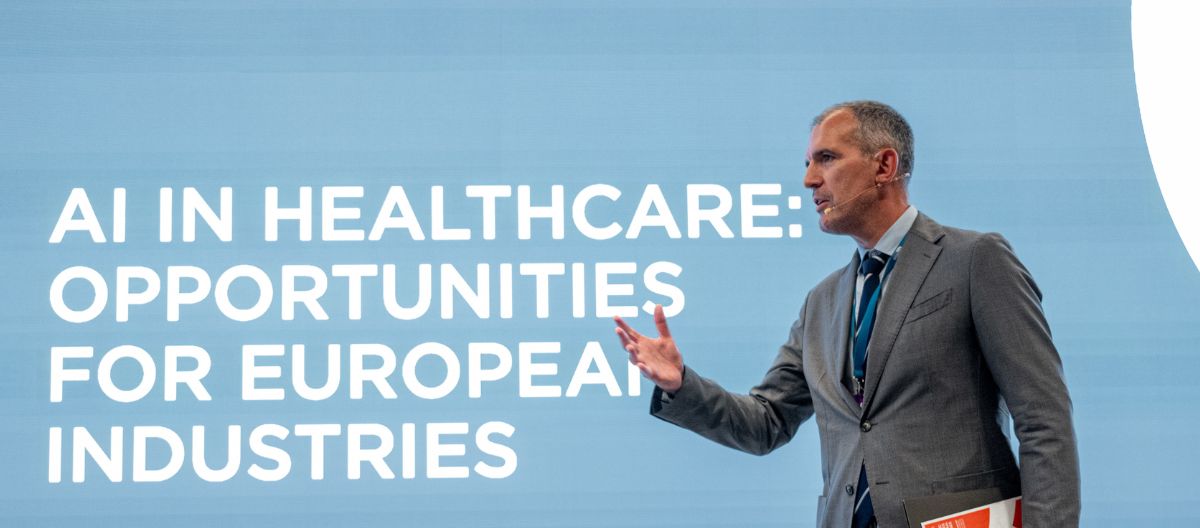
New Campus Talk: Artificial Intelligence in Healthcare – Opportunities for European Industries
25 September 2024On September 20, 2024, Bologna Business School’s New Campus hosted a New Campus Talk focused on one of the most pressing topics in the healthcare world: “AI in Healthcare: Opportunities for European Industries”. The event brought together international experts from the fields of artificial intelligence, healthcare, and technology to explore how AI is transforming the healthcare industry and what opportunities this shift offers to European companies.
The event, moderated by Teodor Grantcharov, Professor of Surgery at Stanford University, featured prominent figures such as Mahdi Azizian (Nvidia), Stephen Thompson (Intuitive Surgical), Rachel King (Johnson & Johnson Med-Tech), Luigi Di Stefano (University of Bologna), Andrew Hung (Cedars-Sinai), Marc Paradis (Northwell Health), Chiara Formenti (Pfizer), and Antonio Gulli (Google). The discussion delved into the numerous impacts AI is having on healthcare, opening new avenues for improving clinical processes, diagnostics, and personalized care.
One of the key topics was the role of AI in advanced surgery and medical devices. Mahdi Azizian shared Nvidia’s experience in integrating AI into robotic surgery, enabling greater efficiency and precision. Stephen Thompson highlighted how AI helps surgeons refine their skills through continuous learning based on data analysis. In this context, Andrew Hung demonstrated how AI can be used to assess surgical performance and improve the quality of operations, reducing variability in outcomes.
Another emerging theme was the gap between Europe’s capacity to innovate and the challenges in commercializing these solutions. Despite Europe’s leadership in AI research applied to healthcare, bringing innovations to market remains a significant challenge compared to the United States. The speakers discussed the need for increased collaboration between startups and large enterprises to bridge this gap and unlock Europe’s potential.
Data management and privacy represent another crucial aspect of AI in healthcare. Chiara Formenti from Pfizer addressed the challenges related to the protection of sensitive data and Europe’s strict regulations, while also highlighting the importance of finding solutions that enable innovation while safeguarding patient privacy.
Rachel King provided another significant contribution by illustrating the impact of AI in personalized medicine. Thanks to advanced technologies, AI is capable of analyzing vast amounts of data to offer tailored treatments for each patient, improving clinical outcomes and reducing costs. This approach not only allows for more effective care but also accelerates medical decision-making.
Lastly, Marc Paradis emphasized the critical role of data in transforming healthcare. The creation of large data repositories, such as the one developed by his team, enables the generation of new AI applications that can improve clinical performance and optimize healthcare system resources.
The discussion concluded with a lively Q&A session, where participants engaged with the speakers on how Europe can best leverage the potential of artificial intelligence in healthcare. Despite the challenges, an optimistic vision emerged: AI has the potential to revolutionize healthcare, offering new care opportunities and improving the overall efficiency of healthcare systems.
The event provided a valuable opportunity to reflect on how AI is redefining the future of medicine and how European industries can contribute to this transformation.
